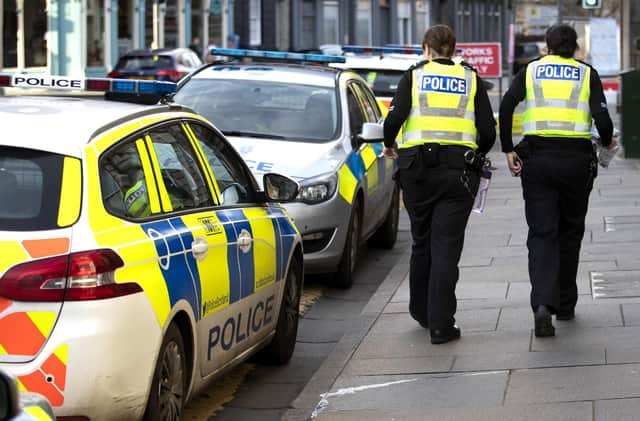From police and prisons to NHS, essential public services are facing major staff shortage crisis – Tom Wood


It’s not just the perennial calls for more cash, it’s more serious than that. It’s the shortage of people to do the jobs and fill the gaps.
Anyone who has tried to transit an airport this summer will know all about staff shortages but now our essential public services are raising the alarm.
Advertisement
Hide AdAdvertisement
Hide AdPolice Scotland have been struggling to recruit for a while. Applications have not recovered from lockdown. At the same time, Craig Naylor, the new Inspector of Constabulary, has rightly brought attention to the fact that police are increasingly being drawn into non-police roles due to shortages in other areas, such as mental health.
The police have always undertaken a range of non-police tasks but the latest data suggest as many of 75 per cent of calls do not involve crime. Bad enough, but all this is set against a background of a protest against poor pay that has led some officers to “withdraw goodwill”, flexibility, in their daily work. It has all the elements of a perfect storm.
We all know our courts are hopelessly backed up and now the Inspector of Prisons has raised an alarm. In her latest report, she once again draws attention to overcrowding in our prisons, exacerbated by staff shortages.
Our health service is doing little better, despite devouring the lion’s share of public funding. The new Queen Elizabeth hospital in Glasgow reports chronic staff shortages are taking an intolerable toll on the physical and mental health of the remaining staff.
So what’s affecting so many essential public services? We know it’s not just about money, there is a real shortage of people who want to take on these roles.
There seems to be a number of reasons. We have an ageing population with fewer working-age people about. Brexit hasn’t helped with many foreign workers heading home. Covid and long lockdown have changed the way we live.
Many civil servants and health staff, in their 50s, having worked from home for the best part of two years, can’t face going back to the office and have retired early. The loss of experience caused by these early leavers should not be underestimated.
Then there’s the simple fact that working in the police, NHS or prisons is unrelentingly tough. With many job vacancies in other sectors, there are easier options with less stress and a better work-life balance.
Advertisement
Hide AdAdvertisement
Hide AdAdditionally, there is ‘the McLeod Remedy’, a recent judgement that changes pension reforms. It’s complicated, but the bottom line is that many older public sectors workers now have the option to retire on a pension years earlier than envisaged. A further exodus is predicted.
The demographic dip is an international phenomenon, as are shortages in public services. Some organisations are adopting novel techniques to aid recruitment. The famous New York Police Department have drastically reduced their physical fitness criterion. Other organisations are offering substantial cash inducements to attract people.
While Brexit and Covid have exacerbated this problem, the underlying issue is more fundamental. We need a comprehensive workforce strategy across our public services. And we need it now.
Tom Wood is a writer and former police officer
Comments
Want to join the conversation? Please or to comment on this article.
